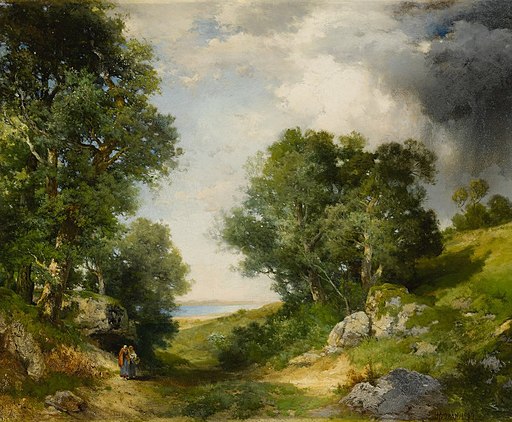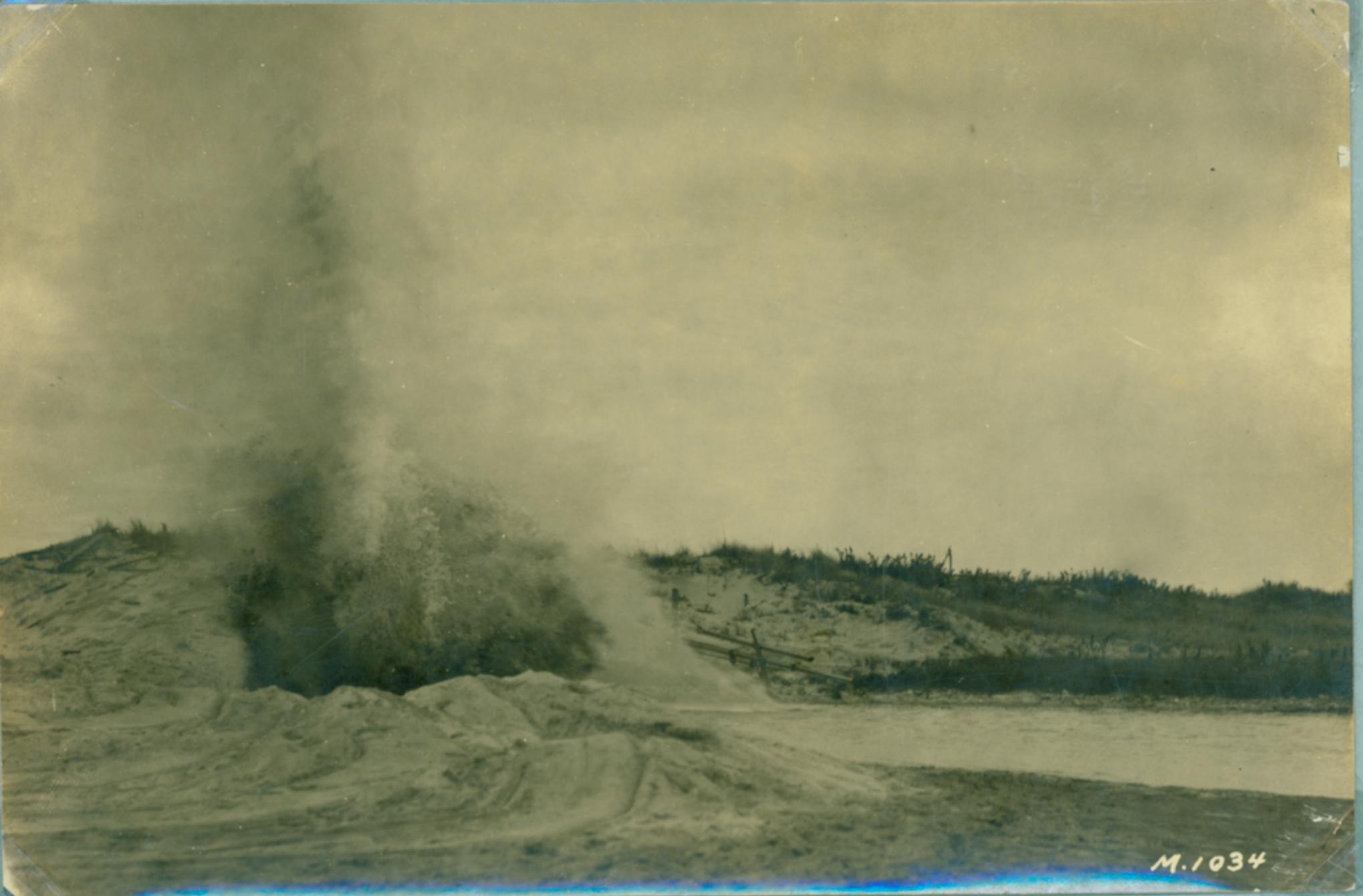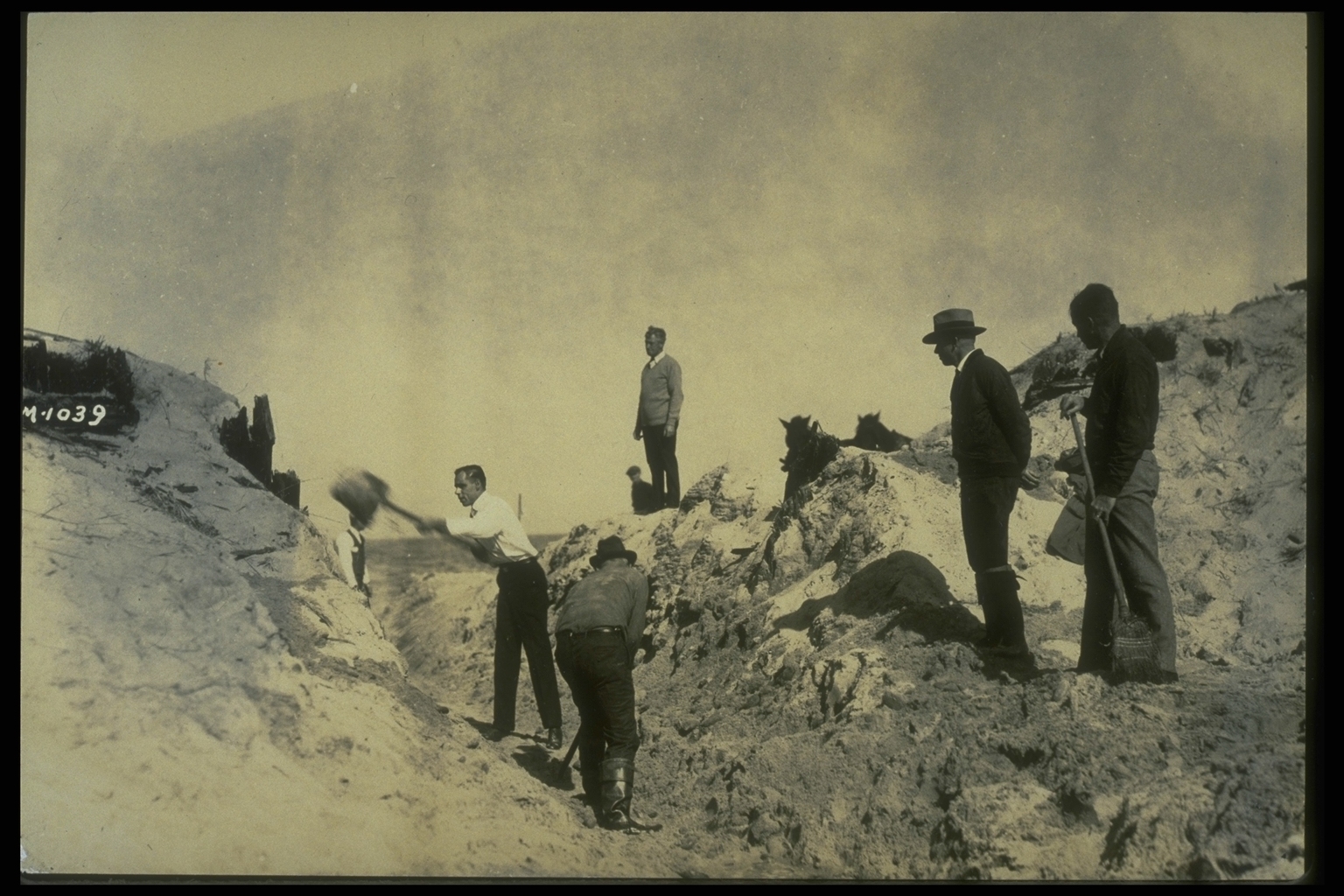


There wouldn’t be a Blessing of the Fleet on Sunday in Montauk Harbor – actually, there wouldn’t be a Montauk Harbor at all – if a channel hadn’t been cut in the 1920s to connect Lake Montauk with Block Island Sound.
The lake used to be known as Great Pond and Lake Wyandance or Lake Wyandanee. About two and a half miles long and a mile wide, shallow with brackish water and a muddy bottom, the pond teemed with fish and wildlife that fed Native Americans who lived and were buried on its shores. By the late 19th and early 20th century, hunters from Amagansett and East Hampton were traveling to Great Pond to bag black ducks and Canadian geese. Two were unsuccessfully tried for trespassing in 1922 after the Montauk Company bought most Montauk property from Austin Corbin’s estate. (Two officials who offered testimony at the trial happened to be Game Warden Mallard and Game Warden Finch.)
Carl Fisher is said to have planned his transformation of Montauk aboard his yacht, the Shadow K, on Block Island Sound. No wonder, then, that as part of the scheme he permanently opened Great Pond to the Sound, creating a channel 15 feet deep and 200 feet wide for a 1,000-foot, landlocked yacht basin. After it was dug, “the small opening permitted a rush of water that within fifteen minutes had torn out an opening of several feet.” the Southampton Press reported on August 26, 1926. Eventually, the former pond – Fisher renamed it Lake Montauk — was dredged, a jetty was built on either side of the harbor entrance, and Star Island and the yacht club were connected to the mainland.
Today it seems unthinkable that developers could blow up a sand dune and rearrange the natural flow of water and sand, salinity, fish, and wildlife. Ultimately, however, opening Great Pond created a favorable home for Montauk’s commercial and recreational fleets that exists to this day. Something to think about, maybe, on Sunday — as flags fly and horns blast and boats form a procession out of the harbor and into Block Island Sound.

Reply or Comment